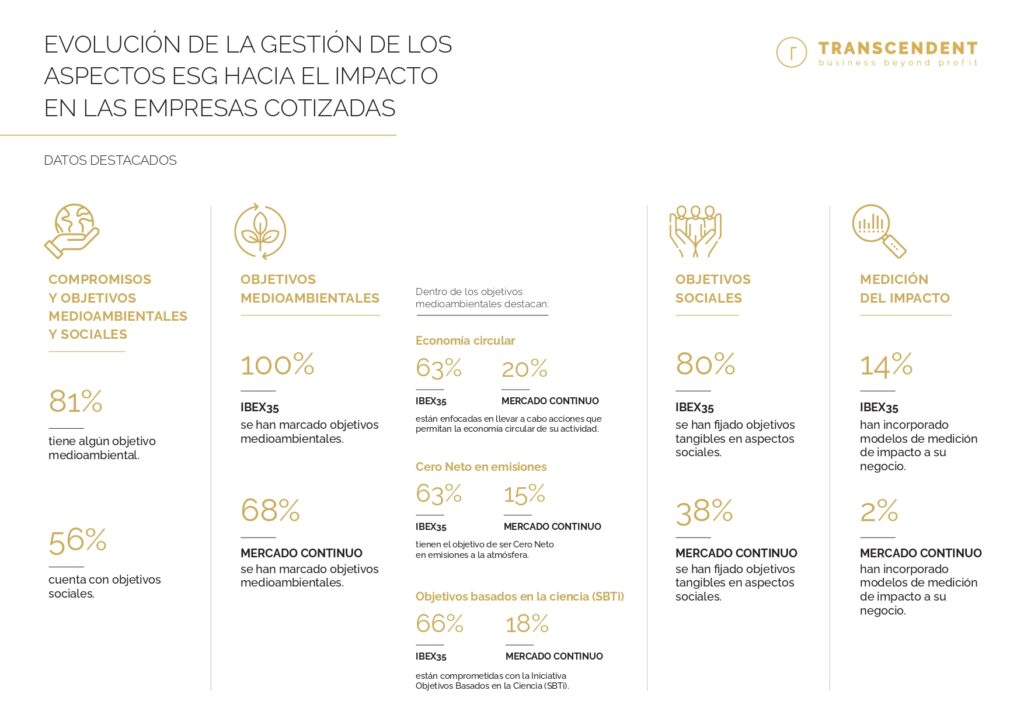ESG management has been the dominant framework for assessing and managing corporate performance in terms of sustainability in recent years. And in Spain we can say that, in general terms, it has been done well in the context of sustainability in listed companies.
According to the Sustainable Development Report 2023Spain is in 16th place in the SDG Index, a ranking that evaluates the progress of countries towards the fulfilment of these goals. In this sense, our country has experienced steady progress since 2017, as its rating has risen from 76.8 to 80.4 in the latest edition of the report.
However, in the face of these global challenges and the growing demand from different stakeholders, companies need to evolve towards more holistic management. This is where impact management becomes important, an approach that goes beyond mere risk minimisation and regulatory compliance and places the emphasis on generating tangible benefits for society and the environment.
How companies are managing their impact measurement
That is why this year Transcendent asked the question: How are companies managing their impact? The findings indicate just how nascent this process is. According to our report "Evolution of ESG management towards the impact on listed companies"., only 14% of IBEX 35 companies and 2% of the rest of the continuous market have incorporated impact measurement models.o. These figures reveal how difficult and challenging it is for companies to measure their impact.

However, if there is one thing to highlight, it is progress on environmental issues.
On average 81% of companies have set such targets. And due to regulatory pressure, all IBEX 35 companies have set environmental targets, while in the continuous market the figure is already 68%.
Within these environmental targets, more than 60% of IBEX 35 companies and 15% of other listed companies have set long-term net zero emissions targets.
Social commitments moving forward, but lagging far behind environmental priority
On the other hand, if we stop to analyse the social commitments and sustainability of Spanish listed companies, they are still far from being as important as environmental ones, but their progress has been surprising since 2020.
Although just over half of the listed companies (56%) have engaged in internal or external stakeholder issues, the increase of companies with such objectives has been more than 360% in the last three years.
But more striking is the fact that companies in the rest of the continuous market have accelerated their pace in setting these commitments, increasing their social action targets by more than 1,800%. Despite this large figure, there is no doubt that IBEX companies continue to set the trend, with 80% of companies setting and communicating social commitments compared to 38% in the continuous market.
Diversity and supply chain management are the areas with the greatest commitment in the social sphere, especially in the IBEX 35. Within these, it is worth highlighting the efforts being made by listed companies to comply with the Spanish regulation to achieve a 40% presence of women on boards of directors.
Despite progress, there is room for improvement. Offering more tangible objectives to positively impact the community and different stakeholders can be an opportunity to differentiate, to attract talent and to anticipate the next European Social Taxonomy, which will bring greater homogenisation and, consequently, the need for greater differentiation.





